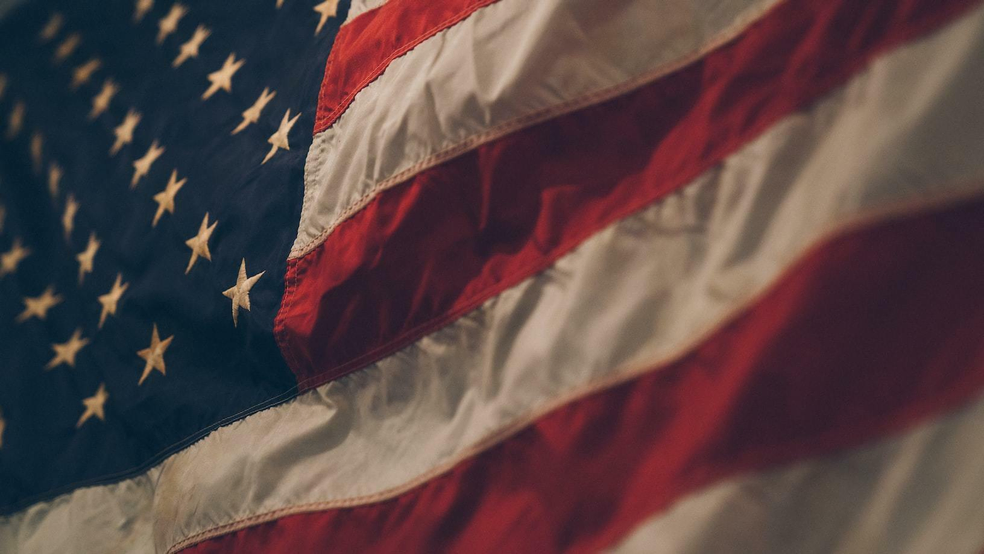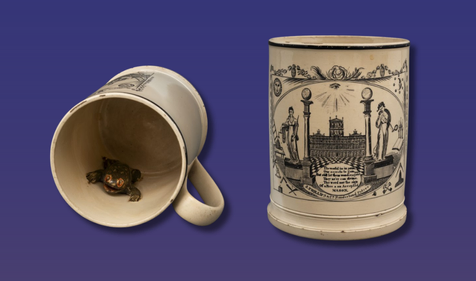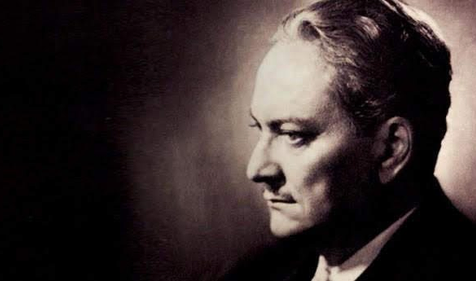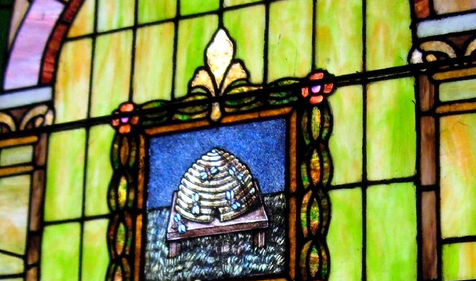The United States’ Founding Fathers, including George Washington, John Hancock, Benjamin Franklin, and Paul Revere are well known across the U.S. for laying the foundation upon which our country has been built, just as their devotion to the Fraternity is lauded among Masons.
“We hold these truths to be self-evident, that all men are created equal, that they are endowed by their Creator with certain unalienable Rights, that among these are Life, Liberty and the pursuit of Happiness." - Preamble of the Declaration of Independence
In honor of Independence Day, it is fitting to reflect upon those who made this national holiday possible. The signing of the Declaration of Independence and the American Revolution were borne from our Founding Fathers’ unwavering belief in the right to “Life, Liberty, and the pursuit of Happiness.” Thus, today, we celebrate the bravery and patriotism of the men who did what was deemed treasonous in order to achieve what they knew was right for their fledgling nation.
Among these liberty-seeking men were some of the United States’ most prominent historical figures, including George Washington, John Hancock, Benjamin Franklin, and Paul Revere. Just as these courageous men are well known across the U.S. for laying the foundation upon which our country has been built, their devotion to the Fraternity is lauded among Masons.
George Washington
George Washington, First President of the United States of America
As the first President of the United States of America, George Washington is one of the most famous Founding Fathers and Freemasons in American history. Washington acted as the backbone of the American Revolution and set an example for future presidents by serving the American people with dignity and humility. To learn more about the political leader and military general who led the Patriots to victory in the War for Independence, we encourage you to visit our blog George Washington, President and Freemason.
Benjamin Franklin
Benjamin Franklin, Founding Father, Politician and Freemason
Once described as “An Illustrious Brother whose distinguished merit among Masons entitles him to their highest veneration,” Brother Benjamin Franklin was a true embodiment of Masonic values. A writer, an inventor, an activist, a revolutionist, and a Freemason, Benjamin Franklin’s life was never dull.
Born in the city of Boston, Massachusetts, Franklin was an enthusiastic writer from the first. At the early age of 12 years old, he became an apprentice for the printing company owned by his brother, James. Three years later, James had established the first US newspaper, The New England Current, and, much to young Benjamin’s dismay, his brother forbade him to submit his own work to the paper. However, having always been an advocate for freedom of speech, Franklin submitted his work under the pseudonym, Silence Dogood. Ardently committed to this fundamental right, Franklin once said, “Without freedom of thought, there can be no such thing as wisdom and no such thing as public liberty without freedom of speech.”
In 1731, at the age of 17, young Franklin’s travels took him to Philadelphia, Pennsylvania, where he was quickly initiated into the Philadelphia Masonic Lodge. His dedication to Freemasonry led him ultimately to become Grand Master of PA in 1734 and Secretary of John’s Lodge from 1735 to 1738. His other notable Masonic accomplishments include editing and publishing the second edition of James Anderson’s Constitutions of the Free-Masons.
Over time, Benjamin Franklin’s popularity and political clout grew and he was eventually selected as the Pennsylvania Delegate to the Second Continental Congress. During the rise of the Revolution, Franklin became an appointed member of the Committee of Five, which was responsible for drafting, presenting and, ultimately, signing the Declaration of Independence.
John Hancock
John Hancock, Governor of Massachusetts
John Hancock played a pivotal role in sparking the rebellious flame of independence that liberated the American colonies from under British rule. Like many notable figures of the Revolution, Brother John Hancock was born in Massachusetts. He graduated from Harvard Law and spent much of his life dedicated to the Revolutionary cause, his political aspirations, and the Craft.
During a trip to Quebec in 1762, Hancock was first made a Freemason in the Marchants Lodge No. 277. Upon his return to the colonies later that year, he became a devoted Brother to the Lodge of St. Andrew in Boston.
Hancock’s career in politics was prolific. While serving as President of the Second Continental Congress, Hancock etched his place in American history when he scribed his famously flamboyant, oversized signature upon the Declaration of Independence. As legend has it, Hancock claimed he wanted King George III to be able to read his signature without the use of his eyeglasses.
Following the Revolutionary War, he was elected as the first Governor of the Commonwealth of Massachusetts. As Governor, he pushed for the ratification of the U.S. Constitution and would end up holding the office twice. In poor health during his second term, John Hancock passed away while in office and was buried in Boston. His grave remains a popular destination for those visiting the city to this day.
Paul Revere
Paul Revere, Folk Hero, Silversmith & Freemason
Born in the North End of Boston, Massachusetts, Paul Revere spent his formative years as an apprentice at his father’s silver shop. As a young adult, Revere enlisted in the provincial army to support the patriot cause. Later in his life, he opened his own silver shop and became a well-regarded silversmith in his community, although he also dabbled in dentistry to help him make ends meet.
Throughout his life, Brother Paul Revere was an active, devoted Freemason, beginning his Masonic journey in 1761 when he became a member of the St. Andrews Lodge. After 34 years as a Freemason, Revere was elected as the second Grand Master of the Grand Lodge of Massachusetts.
There is likely no story more famous in the United States’ history than that of Paul Revere’s “Midnight Ride”. A Freemason through and through, his courageousness and pivotal role in defying the forces of the British army made him a local hero and legend throughout the colonies, but especially in Massachusetts.
It was April 18th, 1775, when Revere was summoned by fellow Mason, Dr. Joseph Warren. There were rumors that the British army was making its way toward Lexington to capture Samuel Adams and John Hancock. There was also a mounting fear that the British planned to invade Concord military stores to destroy military ammunition. The story is well-known across the United States: Warren sent Paul Revere out riding to Lexington to warn Adams and Hancock and help them avoid capture, along the way warning the patriots of Massachusetts that the British were coming.
His legacy lives on to this day, especially in Massachusetts, where the town of Revere bears his name. The route of his famous ride is still marked by signs through Lexington and Concord.
John Adams
John Adams, Second President of the United States of America
Although he was not a Freemason, it is fitting to revisit the eloquent and prescient words John Adams wrote to his beloved Abigail as the Continental Congress prepared to sign the Declaration of Independence on July 4, 1776.
It ought to be commemorated as the day of deliverance, by solemn acts of devotion to God Almighty. It ought to be solemnized with pomp and parade, with shows, games, sports, guns, bells, bonfires, and illuminations, from one end of this continent to the other, from this time forward forevermore.
You will think me transported with enthusiasm, but I am not. I am well aware of the toil and blood and treasure that it will cost us to maintain this Declaration and support and defend these states. Yet, through all the gloom, I can see the rays of ravishing light and glory. I can see that the end is more than worth all the means. And that posterity will triumph in that day’s transaction, even although we should rue it, which I trust in God we shall not…
It may be the will of Heaven that America will suffer calamities still more wasting, and distress yet more dreadful. If this is to be the case, it will have this good effect at least. It will inspire us with many virtues which we have not, and correct many errors, follies and vices which threaten to disturb, dishonor and destroy us. The furnace of affliction produces refinement, in States as well as individuals...But I must submit all my hopes and fears to an overruling Providence, in which, unfashionable as the faith may be, I firmly believe.
Related Stories
Discover additional Scottish Rite blogs and news on this topic.
-
A Jolly Masonic Mug
History
Read More about A Jolly Masonic Mug
-
Manly P. Hall: Philosopher, Mystic, and Freemason
Famous Masons
Read More about Manly P. Hall: Philosopher, Mystic, and Freemason
-
What Does the Beehive Mean in Freemasonry?
Degrees
Read More about What Does the Beehive Mean in Freemasonry?



